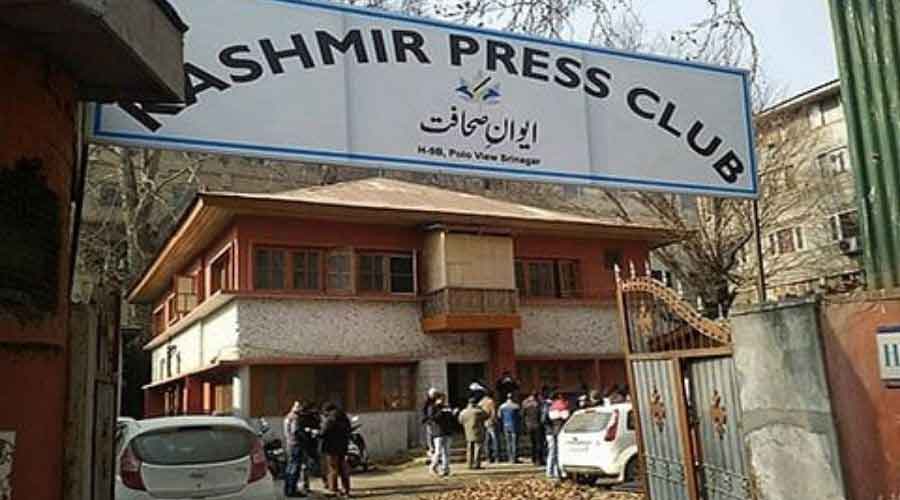The Press Club of India (PCI) on Thursday came down hard on Lt Governor Manoj Sinha’s administration as it termed the recent cancellation of the Kashmir Press Club’s registration and takeover of its premises as illegal and coercive, joining a host of major journalist associations in asking the government to reverse its decisions.
The administration on Monday took control of the premises of the crisis-hit KPC and declared the body illegal after a week of high drama where a group of journalists allegedly backed by the dispensation tried to take over its reigns.
They even warned journalists to desist from issuing statements on behalf of the KPC, calling it illegal. The warning agrees with a larger official narrative that deems dissent as illegal in Kashmir.
The PCI on Thursday came out in defence of the Valley’s besieged journalist fraternity and said the government’s “coercive” action against them would adversely affect the image of the Union Territory.
In a letter to Sinha, the PCI accused his administration of violating the basic constitutional rights of the local journalists and sought his effective intervention to set things right.
“PCI referred to the events that unfolded at the Kashmir Press Club as patently illegal and requested Lieutenant Governor Sinha’s urgent intervention to restore the land and registration of the Kashmir Press Club,” PCI president Umakant Lahera said in a statement.
“It also urged the LG to ensure that the club is allowed to hold free and fair elections in the interests of transparency and democratic functioning and for the sake of journalists in J&K who remain committed to the profession despite the difficulties they face and the sensitivities of the region they serve.”
The government action has earned it the ire of top media watchdogs in the country and outside.
On Wednesday, Paris-based Reporters Without Borders said the club’s closure was “clearly the outcome of a coup hatched at great length by the local government, which follows Prime Minister Narendra Modi’s orders”.
“This undeclared coup is an Indian government insult to all the journalists trying to do their job in the Kashmir Valley, which is steadily being transformed into a black hole for news and information,” the head of the RSF’s Asia-Pacific desk, Daniel Bastard, said in the statement.
In a further rebuke, the PCI on Thursday called the January 14 capture of the club by some journalists “unfortunate” and an “armed take-over”.
On Wednesday, the Editors Guild of India had said in a statement that it was “deeply anguished” by the shutting down of the KPC, adding that it sets “a dangerous precedent” for media freedom.
“The shutting down of the club is the latest act in a sequence of disturbing events, wherein the ‘re-registration’ of the club was first arbitrarily put ‘in abeyance’ by the Registrar of Societies on January 14th, followed by the shocking breach of institutional norms when a group of people, with the active support of state police and CRPF, took over the office and management of the Club on January 15th,” the EGI said.
The Guild has demanded that the status quo before the January 14 order of the Registrar of Societies be restored concerning the functioning of the club.
“Space for media freedom and active civil society has been steadily eroding in the region. Journalists frequently face intimidation from terror groups as well as the state. They are also charged under heavy penal laws and are routinely detained by security forces for reporting or for their editorials,” it said.
The PCI letter asks the LG to immediately restore the registration of the KPC and allotment of the club’s land and building to “protect the freedom of the press in the state”.
“The managing committee of the Press Club of India is deeply concerned that the local administration did not take any cognisance of the appeal made by all of us to you on January 16,” the letter said, referring to a plea that day after the KPC building was sealed for a week on the pretext of imposing Covid restrictions.
The PCI said the administration’s action was “not only undemocratic and illegal but also an attack on the freedom of the press” and derailed “the election process with its unilateral action”.
The letter accused the Sinha administration of “forcibly” interfering in the work of journalists and “keeping them under pressure and fear of administrative coercion, armed security forces, and police”.











